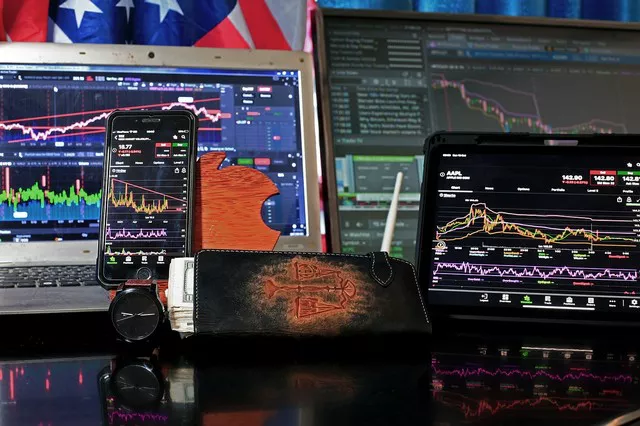When it comes to financial derivatives, futures and options are two of the most commonly used instruments. While both offer opportunities to profit from price movements in underlying assets, there are several reasons why futures are often considered a better choice than options.
In this article, we will explore the advantages of futures trading over options and explain why experienced traders tend to prefer futures as their go-to instrument for hedging and speculation.
Advantages of Futures Trading over Options
Standardization:
One of the primary advantages of futures contracts is that they are highly standardized. This means that each contract has uniform specifications with regard to the underlying asset, contract size, delivery date, and settlement terms. As a result, futures trading tends to be more transparent and easier to understand than options trading, which can involve a wide range of strike prices, expiration dates, and other variables.
Liquidity:
Another advantage of futures contracts is their high level of liquidity. Because futures trade on organized exchanges, they are subject to strict regulations that ensure transparency and fairness. This makes it easier for buyers and sellers to find counterparties and execute trades quickly and efficiently. By contrast, options trading can be less liquid, particularly for contracts with longer expiration dates or more exotic structures.
Margin Requirements:
Margin requirements are another area where futures have an advantage over options. Because futures contracts are highly standardized, brokers can offer margin rates that are consistent across all contracts. This makes it easier for traders to manage their risk and maintain adequate capitalization. By contrast, options trading can involve complex margin calculations that can be difficult to understand and manage.
Flexibility:
Despite their standardization, futures contracts offer a high degree of flexibility when it comes to position management. Futures traders can easily adjust their exposure to the underlying asset by buying or selling additional contracts. This allows traders to hedge against specific risks or take advantage of market opportunities as they arise. By contrast, options trading can be more rigid, particularly for contracts with fixed expiration dates and strike prices.
Transparency:
Transparency is another area where futures have an advantage over options. Because futures trade on organized exchanges, all trades are recorded and reported in real time. This makes it easier for traders to track price movements and understand market trends. By contrast, options trading can be less transparent, particularly for over-the-counter (OTC) contracts that are not traded on exchanges.
Lower Trading Costs:
Finally, futures trading tends to be less expensive than options trading. Because futures contracts are highly standardized, brokers can offer lower commission rates than for options contracts. In addition, futures traders do not have to pay premiums or fees for the purchase of options contracts, which can add up over time.
Why Futures Are the Superior Choice for Hedging
While both futures and options can be used for hedging purposes, futures are often considered a superior choice for several reasons.
First, futures contracts are highly standardized, which makes them easier to use as hedges against price fluctuations in underlying assets. By contrast, options contracts can be more complex and may involve multiple variables that can be difficult to manage.
Second, futures contracts offer a high degree of flexibility when it comes to managing risk. Traders can easily adjust their exposure to the underlying asset by buying or selling additional contracts, making it easy to modify a hedging strategy as market conditions change.
Finally, futures contracts tend to be more liquid than options contracts, which makes it easier to execute trades quickly and efficiently. This can be particularly important when hedging against volatile price movements.
Top Reasons Why Experienced Traders Prefer Futures to Options:
Simplified Risk Management:
Experienced traders often prefer futures to options because of their simplified risk management. Futures traders can easily adjust their exposure to the underlying asset by buying or selling additional contracts, making it easy to modify a trading strategy as market conditions change. By contrast, options trading can involve complex calculations and multiple variables that can make risk management more challenging.
Efficient Execution:
Efficient execution is another reason why experienced traders tend to prefer futures to options. Because futures trade on organized exchanges, all trades are recorded and reported in real time. This makes it easier for traders to track price movements and execute trades quickly and efficiently. By contrast, options trading can be less transparent and may require more effort to find counterparties and execute trades.
Lower Costs:
Finally, lower costs are a key advantage of futures trading over options trading. Because futures contracts are highly standardized, brokers can offer lower commission rates than for options contracts. In addition, futures traders do not have to pay premiums or fees for the purchase of options contracts, which can add up over time.
Conclusion
While both futures and options can be useful financial derivatives, there are several reasons why futures are often considered a better choice for hedging and speculation. Futures contracts offer standardization, liquidity, transparent pricing, flexibility, simplified risk management, efficient execution, and lower costs compared to options contracts. These advantages make futures a preferred choice for experienced traders when it comes to managing risk and profiting from price movements in underlying assets.
It is worth noting that futures trading does come with risks, just like any other financial investment. Traders must carefully manage their positions and exposure to market volatility to avoid significant losses. However, with proper risk management and a solid understanding of the market, futures can be an effective tool for achieving financial goals and building wealth over time.
Overall, if you are considering trading financial derivatives, it is important to carefully evaluate your goals, risk tolerance, and experience level before choosing between futures and options. While both instruments have their pros and cons, futures often offer a more transparent, cost-effective, and flexible approach to trading that can help you achieve your financial objectives over the long term.

